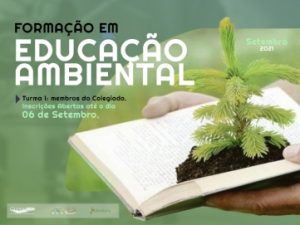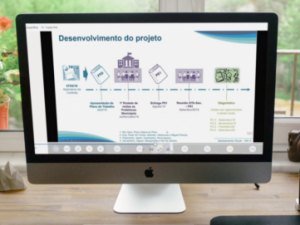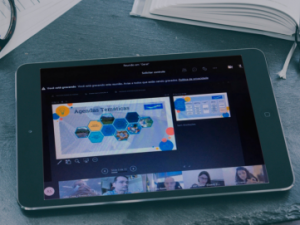The Guandu-RJ Committee, the oldest collegiate body for participatory water management in the state of Rio de Janeiro, will turn 19 on Saturday, April 3rd. To set the date and comply with an internal resolution, the Committee will hold on April 5th, 6th and 7th, at 9 am, an online integration seminar that will include the participation of experts from all over the country to debate the management of water resources in the hydrographic region that supplies nine million people in the Metropolitan Region of Rio de Janeiro. The member-oriented event will be streamed live on the Collegiate’s YouTube.
In the three days of programming, important themes will be discussed in relation to the state water resources policy, management instruments, governance and the actions necessary for advances in environmental quality. On the first day, April 5, at 9 am, Leila Heizer, a retired employee of the then State Foundation for Engineering and Environment of the State of Rio de Janeiro and also of INEA, will talk about the Guandu Committee, what it is and how they were his early years. Leila has a Master’s Degree in Science in Water Resources (COPPE/UFRJ) and was the Collegiate’s first executive secretary. On this day there will also be a presentation of all the projects in progress and under implementation of the Committee, which from now on will be worked on by the members sworn in in February of this year. After learning about the projects, members will be able to introduce themselves, talk of their institutions and their performance in water resources and the environment.
On Tuesday, April 6th, the theme will be the state water resources management system and management instruments. Mônica Massera da Hora, PhD in Civil Engineering with an emphasis on Water Resources (UFRJ), and a professor at the Department of Agricultural Engineering and the Environment at UFF, will talk about the functioning of the state water resources management system and the role of each entity in this horizontal, modern and participatory system. Moema Versiani Acselrad, PhD in Civil Engineering with an emphasis on Water Resources and Sanitation (COPPE/UFRJ), and Manager of Water Resources Instruments and Water Governance at INEA, will talk about management instruments, which are the tools that the collegiate uses to achieve environmental advances in the basin. The themes will be mediated by David de Andrade Costa – Doctor in Environmental Planning (COPPE/UFRJ), and professor at the Fluminense Federal Institute. David has already served as a specialist in water resources on the Piabanha Committee. Recently, the article “Assessment of water quality based on multivariate statistics and the water quality index of a strategic river in the Brazilian Atlantic Forest” by José Paulo Soares de Azavedo, Marco Aurélio dos Santos and Santos Facchetti Vinhaes Assumpção, was published in the well-known scientific journal Nature.
The third and last day, April 7, will be for debates in favor of progress. A roundtable with Osman Fernandes da Silva – Oceanologist, Post Doctor in the area of water resources and Coordinator of Collegiate Instances of the National Water Resources Management System at ANA – and Malu Ribeiro – journalist with specialization in public policies and management of water resources . Director of Public Policy at Fundação SOS Mata Atlântica, she will debate how the basin committees should act to implement the actions that the hydrographic region needs. The panel will be mediated by Ângelo Lima, PhD in Geography in the area of Environmental Analysis and Territorial Dynamics (UNICAMP) and Executive Secretary of the Observatory of Water Governance (OGA Brasil). The objective is to broadly debate the ways in which the collegiate acts to implement effective actions in the basin.
According to the Director General of the Guandu-RJ Committee Paulo de Tarso Pimenta (FIRJAN), the Seminar will be an opportunity for learning and growth: “the learning, exchange of experiences and the proposition of advances brought by experts and members will foster and contribute to the strengthening of the Committee and consequently to the management of the basin. It is important that we understand our role and seek, within the available tools, the necessary solutions to improve the quality and availability of water”, he highlighted.
The collegiate members will actively participate in every day of the Seminar, which will have polls for interaction. The society can follow the discussions through the Guandu-RJ Committee channel on YouTube. Click here and go.
COMMUNICATION GUANDU COMMITTEE
Telephone: (21) 3787 3729
E mail: comunicacao.guandu@agevap.org.br



